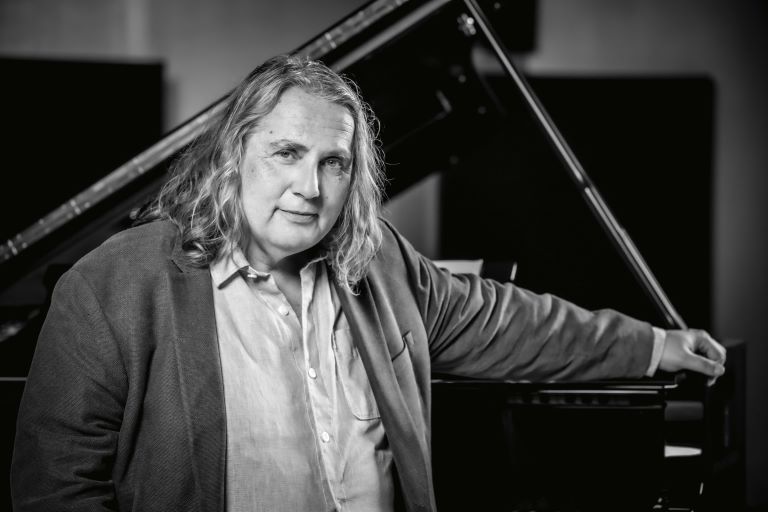
His heart first began beating in 1962 thanks to immigrant parents who had attached themselves to Montréal, near Jeanne-Mance Park. Then came the hands that started playing piano at the age of six. Then the voice, with the Petits Chanteurs du Mont-Royal and breath, at the Conservatory, with a trombone, but also ears that learned to listen with the great Gilles Tremblay. Then in 1990, a first composition prize, and a head full of ideas. Anthony Rozankovic – a composer – presto! The “child who knew too much” will negotiate with life. With his works. With their lives. With the playful and the tragic, the way it should be. “Is this the way people live?” the French poet Aragon asked. That’s how Anthony Rozankovic lives. The NEM knows that. The SMCQ too. And the ECM. The symphony orchestras of Québec, Laval and Montréal know as well. The Symphony Orchestra Cologne, the Robert-Schumann-Philharmonie and many others know.
Then another mentor arrived: the unexpected. One day, his hands were on the keyboard, composing… without his head! Without calculation, without a tonal or five-year plan. Scoreless. That method produced film music, nominations at the Gémeaux Awards and a whole new Rozankovic who would not go on composing the old way. From then on, he would live according to his own beat. And so the same composer created the music for a tale written by Stanley Péan (L’aventurier de l’air perdu) that would be played by the Toronto Symphony Orchestra, then a concert fantasy (Big Bird Fantasy) put on by the Zipangu Ensemble in Bologna, and next the theme for a TV series (Mayday) that aired around the world. Because, of course, a person can love Rameau and Herbie Hancock, Messiaen, and Piazzolla. Great music and movies. That’s how this man would live and compose freely: symphonies, jazz, contemporary music, R&B, themes for TV, the stage, animated film, exhibits at the Pointe-à-Callière museum. More than five hundred works to this day.
That’s the way Rozankovic negotiates with life. He speaks to us in many tongues: intense, delicate, insistent, dissonant, exuberant, disturbing… There seems to be something urgent to get across, but what? Him. Us. The human condition: the clear air of celebration, subversive nostalgia, the fear of dying, the joy of living, the dizzying shared fate of individuals, the sweetness of emotion and the pain of the ending.
